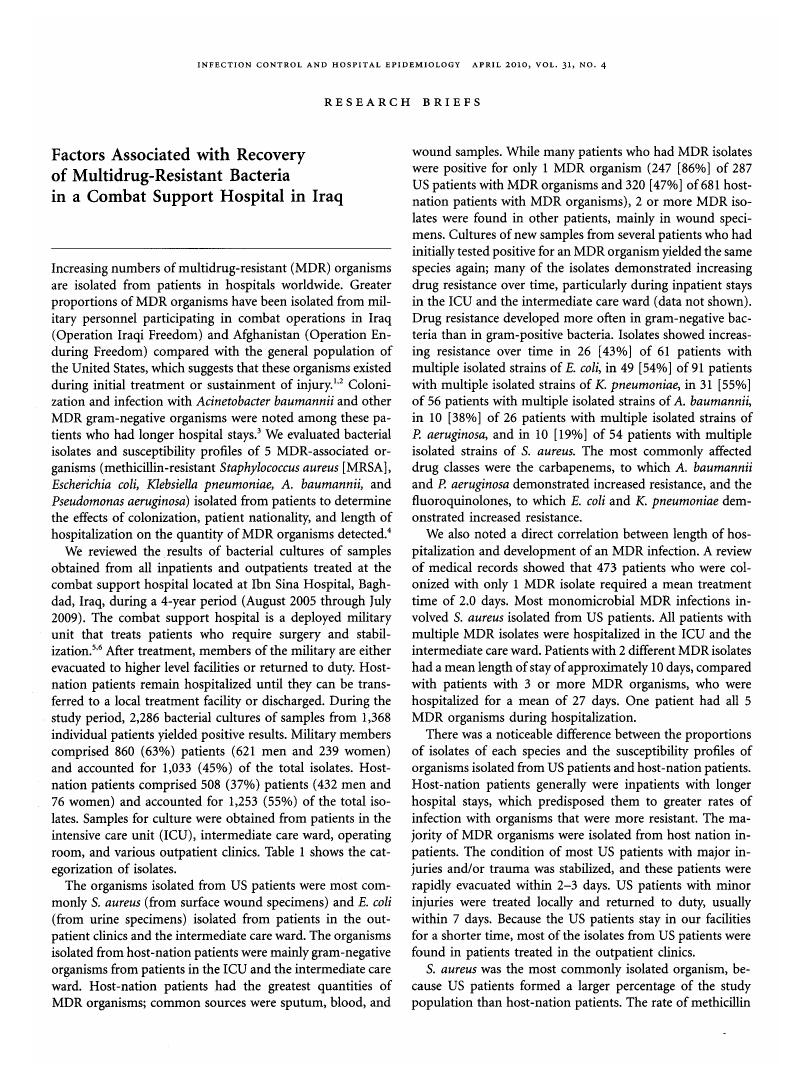Crossref Citations
This article has been cited by the following publications. This list is generated based on data provided by Crossref.
Keen, Edward F.
Mende, Katrin
Yun, Heather C.
Aldous, Wade K.
Wallum, Timothy E.
Guymon, Charles H.
Cole, David W.
Crouch, Helen K.
Griffith, Matthew E.
Thompson, Bernadette L.
Rose, Joel T.
and
Murray, Clinton K.
2012.
Evaluation of Potential Environmental Contamination Sources for the Presence of Multidrug-Resistant Bacteria Linked to Wound Infections in Combat Casualties.
Infection Control & Hospital Epidemiology,
Vol. 33,
Issue. 9,
p.
905.
Kobeissi, Elsa
Menassa, Marilyne
Moussally, Krystel
Repetto, Ernestina
Soboh, Ismail
Hajjar, Marwan
Saleh, Shadi
and
Abu-Sittah, Ghassan
2021.
The socioeconomic burden of antibiotic resistance in conflict-affected settings and refugee hosting countries: a systematic scoping review.
Conflict and Health,
Vol. 15,
Issue. 1,



